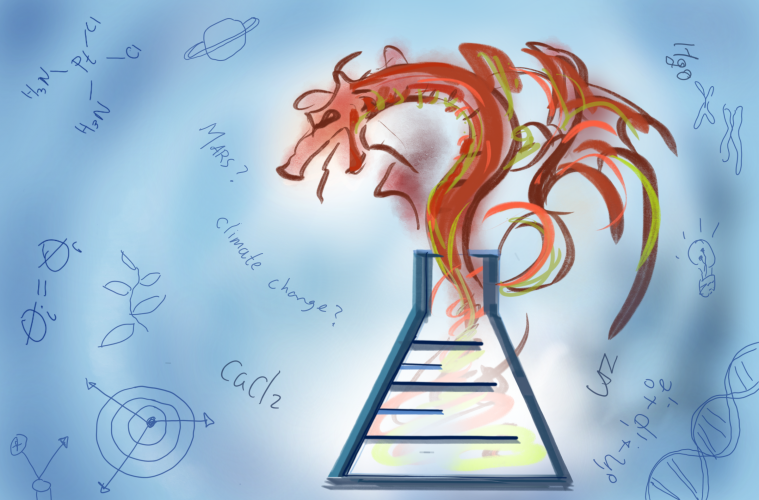The Science Hub: vaping related illness, benefits of GMOs, failed Indian moon landing
September 11, 2019
The Science Hub is back with more science-based news, this time with a section by guest writer, Avidh Bavkar ’20.
The Vape Problem
Six deaths, over 480 cases of a mysterious illness, stretching across 39 states; vaping stands at the center of it all.
Since the first death recorded in Illinois on Aug. 23, 2019, the rate of respiratory illnesses has seen a dramatic jump and left officials scrambling for answers. The death of a Kansas resident Sept. 10 brings more concerns the epidemic, with the urgency and mysteriousness of this situation prompting the FDA as well as other State Health Departments to investigate further.
While the use of cigarettes has been on the decline, E-cigarettes have newfound popularity among not just those using the devices to quit smoking, but also teens. While many cases affect older users in their 40’s and 50’s, the median age of victims lies around 19.
The abrupt introduction of the illnesses suggests contaminants, rather than the average products that have been used over the years. It is not unusual to find a number of “home modifications,” mixtures and counterfeit substances in the widely unregulated world of vaping, leaving a chance for unknown chemical mixtures to be introduced to a person’s system.
The biggest investigation at the current time is of vitamin E acetate, a chemical found particularly in vape products that include cannabinoids such as THC. Without substantial studies on the physical and chemical effects of E-cigarettes, the epidemic’s causes are still unknown. Doctors recommend to refrain from vaping or the use of any type of E-cigarettes for the time being.
-Naomi Schmitt
GMOs, eat up
It isn’t a surprise to most that this beautiful planet has a finite amount of resources for us, but the last few centuries of technological growth has extended our lives for so long that our population has exploded and our need for food puts a big strain on the environment.
In order to keep up with the soaring demand, farmers have turned to industrial monocropping and pesticide use to keep our bellies full, practices that wreak havoc on the environment and can’t be good for us as well. The solution exists: GMOs.
Genetically modified crops can dramatically increase yield while cutting down on the need for pesticides. Scientists believe that in the future, GMOs can actually be healthier than their “organic” alternatives.
As GMOs are a relatively new invention, there is no data showing their harm. Thus, if we are to continue thriving as a species, we must embrace the (literal) fruits of our scientific progress to have a hope of feeding ourselves in a sustainable manner.
-Avidh Bavkar
Indian moon landing fails
On July 22, 2019, the Chandrayaan-2 mission blasted off to hopefully provide India’s first lunar landing. That landing would be where no other country had gone before, the lunar south pole, and bring India into an elite club of countries to successfully land on the moon. This lunar mission was to search for water and minerals on the moon, an extension of the Chandrayaan-1 mission, which located water on the moon.
The mission started well with the unmanned spacecraft entering lunar orbit on Aug. 20 and the lander, Vikram, began its descent on Sept. 7. Roughly one-quarter of a mile above the moon, however, communication between India Space Research Organization (ISRO) and the lander was lost leading to the disappointment of many in ISRO.
However, using thermal pictures, ISRO has discovered that Vikram did end up landing on the moon and is supposedly still in one piece, albeit in a tilted position, and is trying to regain connections with the lander. As of Sept. 10, the efforts have been unsuccessful.
-Thomas Weldele















